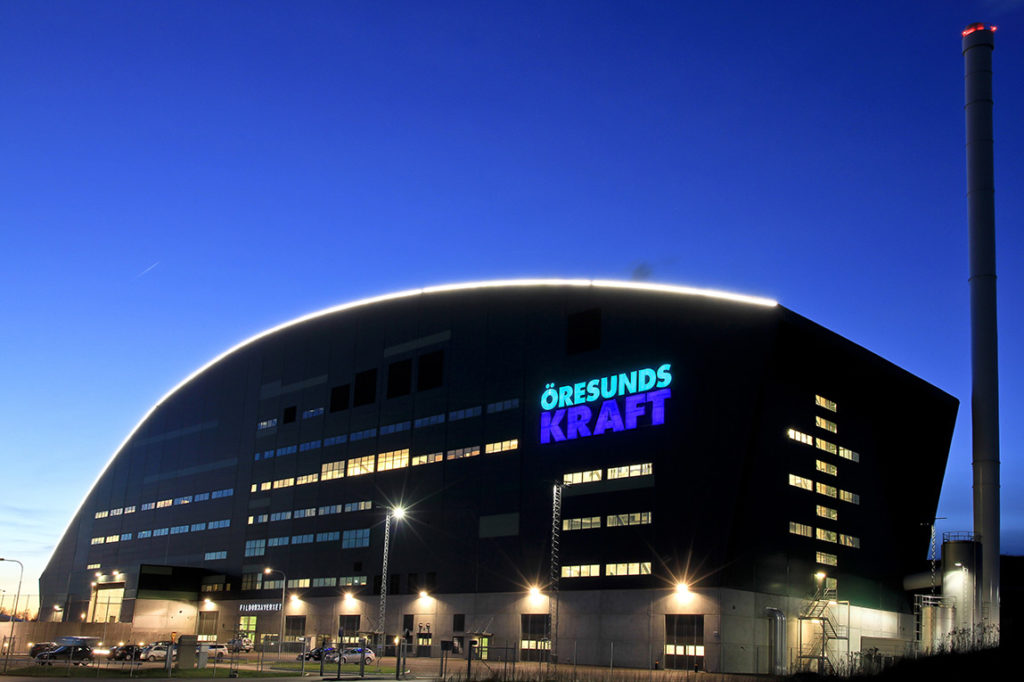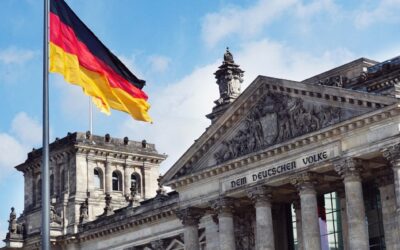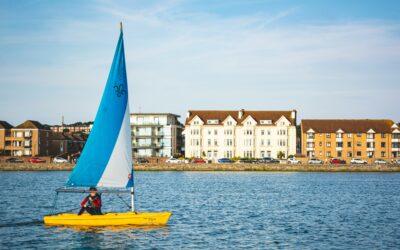Voted the most sustainable local authority in Sweden 2017, Helsingborg City Council has successfully integrated energy supply, waste management, building energy efficiency and planning policy in the city’s long-term sustainability strategy. A close collaboration with the heat networks and electricity supplier, Öresundskraft, has been key to the success.

Helsingborg City’s objective is to have zero fossil fuels in the supply of electricity, district heating and district cooling by 2035 and the city has already come far in reducing carbon emissions. The city’s heat supply is already 100% fossil free with 96% of supply coming from recovered heat and 4% from renewables. Helsingborg City’s success is founded on a close collaboration and common goal across political parties and private businesses to reduce the city’s carbon emissions. “It takes bold political decisions, a well-formulated strategy, KPI’s and a rigorous follow-up process to ensure that targets are met,” says Lars Thunberg, Deputy Mayor of Helsingborg City.
To share its knowledge and experience, Helsingborg City has initiated a close collaboration with a sister city in the UK, namely Stoke-on-Trent. The collaboration is funneled through Öresundskraft, the local heat and electricity supplier, fully owned by Helsingborg City. Due to Öresundskraft’s successful work supplying affordable and green energy to its 260,000 customers while remaining highly profitable, the company has become a European thought leader from both an economic and a sustainability point of view. Öresundskraft has experienced a growing interest in their business model from both cities and private operators in the UK, France, Belgium and Switzerland to mention a few. “We are happy to share our model to support the phasing out of fossil fuels,” says Thunberg. In practice, Helsingborg City and Öresundskraft support Stoke-on-Trent through Nordic Heat, an advisory firm to which Öresundskraft is one of the co-founders, that provides peer-to-peer services to Local Authorities to support them in the development of sustainable heat networks.What is the Helsingborg City’s best advice to Local Authorities seeking a similar model like Helsingborg? Thunberg summarised his best advice in the following three points.
1. Have a common vision for sustainable urban development. It enables all involved parties, including public and private stakeholders to integrate the city’s vision into their own strategies
2. By having publicly owned energy providers, it allows the city to set the sustainability targets and control the follow-up process
3. Cooperate with players from the private sector to reach targets. To be sustainable, ambitious environmental targets have to be combined with economic profitability
As Helsingborg City has already achieved a carbon neutral heat network supplying heating and hot water, the biggest challenge now relates to phasing out fossil fuels in other types of activities. The city is now focusing its efforts to reduce emissions in the transport sector but is also developing public procurement frameworks to integrate the sustainability aspect.
Sweden is at the forefront of decentralised heat networks technology. Our aim for “Heat Networks – Sustainability by Sweden” is to facilitate knowledge sharing between British and Swedish stakeholders and develop and encourage environmental and economic best practice.
To find out how we can help you and your organisation, please contact our London-based “Heat Networks” team. We can introduce you to leading consultants, suppliers of technology and services who will be pleased to share know-how of the development of heat network solutions.


